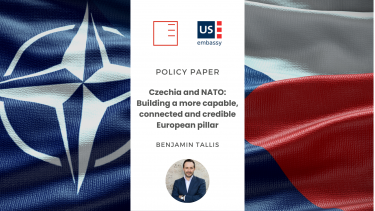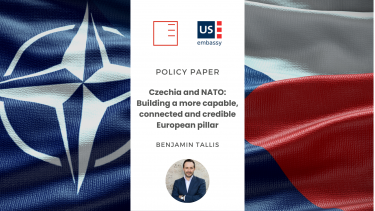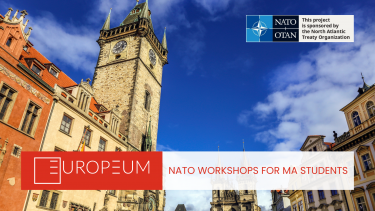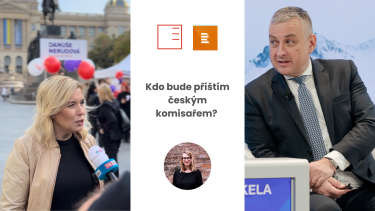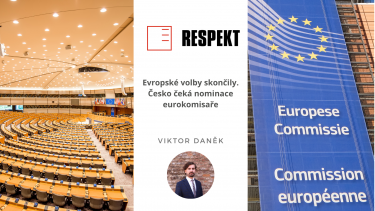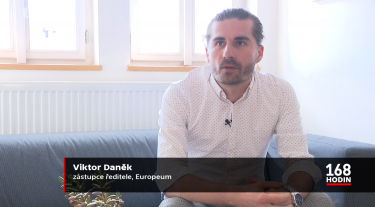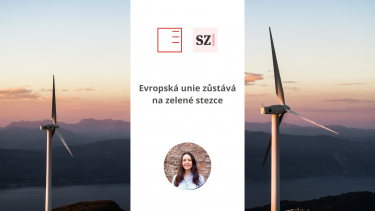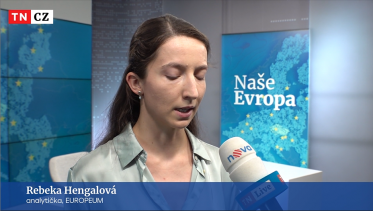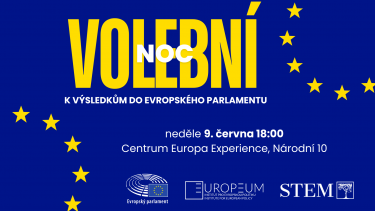Policy paper | Czechia and NATO: Building a more capable, connected and credible European pillar
CEE allies are key to building the capabilities-based, European Pillar NATO needs to enact genuine burden shifting and secure the alliance’s future. Dr Benjamin Tallis shows how Czechia can build on recent progress in defense procurement and increase its influence by prioritising the six elements Euro-NATO needs: core national war-fighting capabilities, logistics, military mobility, strategic enablers, air defence and long-range strategic strike.
Show morePolicy paper | Česko a NATO: Budování schopnějšího, propojenějšího a důvěryhodnějšího evropského pilíře
Spojenci ze střední a východní Evropy jsou klíčem k budování schopného evropského pilíře NATO, nezbytného pro zajištění budoucnosti aliance. Benjamin Tallis ukazuje, jak může Česko navázat na nedávný pokrok v oblasti obranných zakázek a zvýšit svůj vliv tím, že se bude soustředit na šest prvků, které Euro-NATO potřebuje. Těmi jsou základní bojeschopnost na národní úrovni, logistika, vojenská mobilita, strategické prostředky, vzdušná obrana a strategický úder dlouhého dosahu.
Show morePolicy Brief | Were Czech industrial policy interests reflected in EU 2024-2029 strategic agenda discussions?
In light of the recent return of industrial policy to the global and EU stage, this policy brief outlines how Czech interests in this policy were reflected in the debates leading up to the adoption of 2024-2029 EU strategic agenda. First, it strives to define Czech industrial policy interests, outlining two alternative approaches to how they can be perceived. The liberal approach follows the long established consensus, according to which Czechia – as a very open, export oriented economy – should promote above all a seamless Single Market and free trade. Writes EUROPEUM Institute researcher Klára Votavová in her Policy Brief.
Show moreCall for Participants: Euro-Atlantic Future of Ukraine and Eastern Europe: Views from Visegrad
Are you a Master’s student from the Czech Republic, Hungary, Poland, Slovakia keen on international relations and NATO's strategic future? Join our workshop series to engage with experts, present your views on NATO’s Open-Door policy, and network with peers from the region.
Show more
Český rozhlas | Who will be the next Czech commissioner?
The Mayor's party, who have the right to nominate a European Commissioner under the Czech coalition agreement, have announced that they will nominate both Danuše Nerudová and Jozef Sikela for the position of the next Czech European Commissioner. The government is due to decide on a candidate by the end of August. Can the Czech Republic get a highly sought-after economic portfolio? What are the advantages for the country if it gets it? And how difficult is the process of questioning candidates in the European Parliament, the so-called grilling? Klára Votavová, researcher at EUROPEUM Institute, answered these and other questions in an interview for Czech Radio.
Show moreRespekt | The European elections are over. Czechia is awaiting the nomination of a European Commissioner
Who will become the new Commissioner for the Czech Republic? And what topics should we focus on? According to the Deputy Director of EUROPEUM Institute Viktor Daněk, it is necessary to abandon the idea of a strong economic portfolio in the next European Commission. Instead, we should focus on gaining influence and respect through other areas, he commented for the weekly Respekt.
Show moreČT24 | Czechs voted for the European Parliament. How was the campaign?
For the fifth time Czech voters choose their representatives to the European Parliament. Almost 700 candidates competed for 21 seats. What did they offer and what was the campaign like? Viktor Daněk, deputy director of EUROPEUM Institute for European Policy, comments for Czech Television's investigative programme 168 hodin.
Show moreSeznam Zprávy | The European Union remains on the green path
The green parties has weakened, while the eurosceptic, far-right and climate-sceptic factions have strengthened. However, this is unlikely to be a significant obstacle to the implementation of the Green Deal for Europe. The parties behind it have retained the most seats. What implications will the results of the European Parliament elections have for the Union's climate and environmental policy over the next five years? Senior researcher of EUROPEUM Institute Kateřina Davidová commented for Seznam Zprávy.
Show more
TV Nova | How does the Czech public view climate change and the development of renewable energy sources?
Before the upcoming elections to the European Parliament, a debate was held on TV Nova among the leading figures of the seven main political parties, movements, and coalitions. Discussions revolved around important issues such as the migration pact or the conflict in Ukraine. Rebeka Hengalová, a research fellow at EUROPEUM Institute, provided an analysis for TV Nova on how the Czech public views climate change and the development of renewable energy sources.
Show moreElection night on the results of the European Parliament elections
We invite you to the event organized by the European Parliament Office in the Czech Republic, EUROPEUM Institute for European Policy and STEM Institute for Empirical Research. The evening will include two debates on the evaluation of the European Parliament and what challenges await the new one and the European elections and the future of Europe. Speakers include former MEP Pavel Telička and Vendula Kazlauskas from the Association for International Affairs. More information and a detailed programe of the evening can be found below.
Show moreStaroměstské náměstí 4/1
Prague 1 - Staré Město
110 00
tel.: +420 212 246 552
email: europeum@europeum.org
https://www.europeum.org
